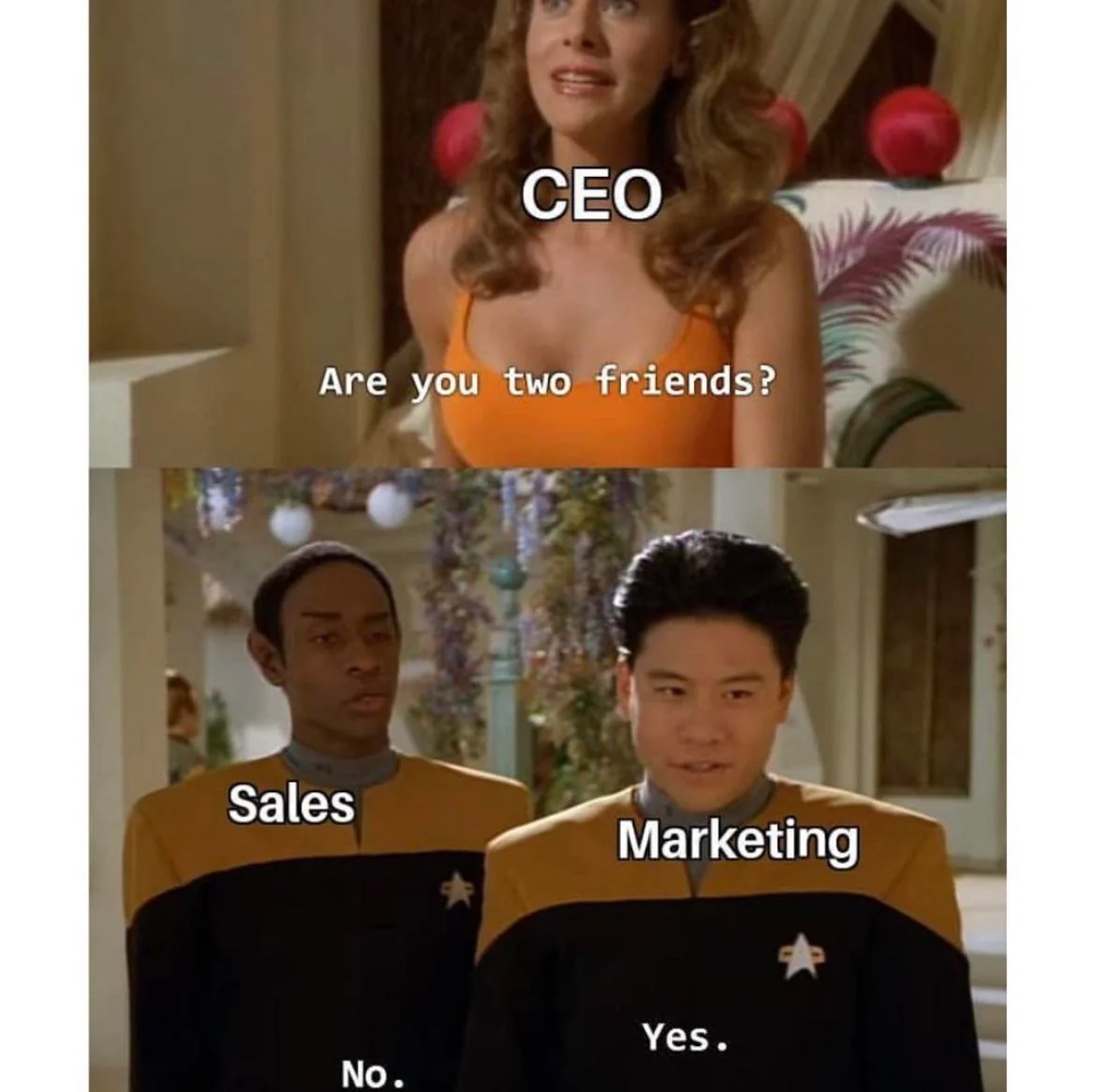Before you all come for me—yes, I know marketing is not sales, and sales is not marketing. I also know marketing isn’t just sales support. But let’s be real—sometimes it is. Whether it’s providing copy, images, design, or messaging, marketing often plays a key role in helping sales teams close deals. And that’s okay.
Sales and marketing teams tend to clash because they operate with different priorities, perspectives, and success metrics. Marketing is typically focused on long-term brand awareness, lead generation, and engagement. Success is measured in metrics like website traffic, social media engagement, and lead volume. Sales, on the other hand, is short-term and revenue-driven. Their main goal is converting leads into customers and hitting quotas. This difference in focus is one of the biggest reasons for tension, especially when marketing generates leads that sales considers “low quality,” or when sales fails to follow up on leads that marketing believes are valuable.
Another common issue is misalignment on lead quality. Marketing may bring in a high volume of leads, but if sales doesn’t think they’re ready to buy, they’ll be disregarded. Sales teams want highly qualified, sales-ready prospects, while marketing often takes a longer-term approach, nurturing leads until they’re ready. When these expectations don’t align, frustration follows.
Then there’s communication—or the lack of it. Sales teams often feel that marketing doesn’t understand the challenges of closing deals, while marketing teams may believe that sales doesn’t leverage the content and tools provided to help them succeed. This disconnect can lead to inefficiencies and finger-pointing.
Attribution disputes are another sticking point. Marketing might take credit for generating a lead, while sales argues that their outreach was the real reason the deal closed. These disagreements create unnecessary competition rather than collaboration, hurting the business as a whole.
Here’s the reality: both teams have valid points, but they have more in common than they think. At the end of the day, if sales isn’t closing deals, their commissions get cut or they get fired. If marketing isn’t generating leads, they get fired. Everyone’s goal is the same—grow the business. It’s just better to do it in harmony.
So, how do you make that happen? Support your sales team. Celebrate their wins. Ask how you can help. A great way to bridge the gap is to ask to sit in on the sales calls. It’s an easy way to get inside the heads of prospects, understand their pain points, and refine your messaging to resonate more effectively. At Allway Tools, we have bimonthly roundtables with our sales team, and it’s a positive, educational experience.
Sales calls are a goldmine for marketers. You learn the exact language prospects are using, the objections they raise, and the real reasons they buy. When you incorporate that insight into your messaging, your marketing becomes sharper, more relevant, and ultimately more effective.
Personally, I enjoy working with sales teams. My goal has always been to align with them on deliverables—especially where they might overpromise—so we can set realistic expectations and ensure what’s being sold is actually deliverable.
At the end of the day, marketing and sales exist for the same reason: to make the line go up. The best way to do that? Work together.




